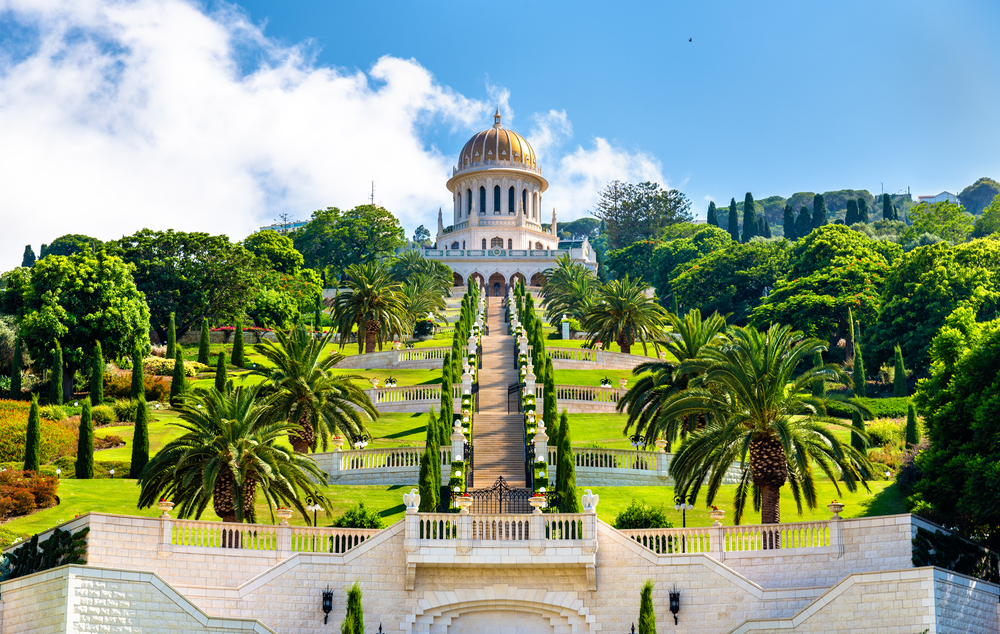
Bahá’í is a beautiful religion that teaches that all religions come from one Source and are essentially a number of chapters of one faith from God. The Bahá’í believe God has sent a series of divine messengers, known as Manifestations of God, and that their teachings have given humanity the foundation for the progression of civilization. Some of these messengers have included Abraham, Zoroaster, Buddha, Krishna, Moses, Muhammed, and Jesus. The most recent messenger was Bahá’u’lláh.
Bahá’u’lláh and the Bábi Movement
Bahá’u’lláh was an Iranian noble in the 1800s who spent much of his life in exile in the Ottoman Empire due to his involvement with the Bábi movement. Babism emerged from Shi’a Islam with Sayyid ʿAli Muhammad Shirazi as its central figure. He would come to be known as the Báb, meaning Gate.
The Báb taught that a messianic figure would follow him: Mirza Husayn-ʿAli Nuri, whom the Bahá’í call Bahá’u’lláh. His half-brother, Yaha Azal, the head of the Bábi community, rejected that notion, which caused a split in the Bábi movement. The majority followed Bahá’u’lláh and became the Bahá’í. The rest became the Bayanis. The Báb was tried for heresy and executed in 1850.
What Do The Bahá’í Believe?
Bahá’ís believe that all faith paths are worshiping the same Source, whom they call God. Bahá’u’lláh is the central figure in their religion, as the most recent divine messenger to be sent to Earth. They believe in:
- The unity of the human race
- Freedom from prejudice
- Developing spiritual enlightenment
- The inescapable bond between worship and service
- Equality of the sexes
- The accordance of science and faith
- The vitality of education
- The importance of relationships as humans move toward a collective maturity
Bahá’u’lláh, which means “the glory of God,” spent his forty years as the central figure of the Bahá’í faith writing verses, books, and letters. He said once, “I have never aspired after worldly leadership. My sole purpose hath been to hand down unto men that which I was bidden to deliver by God.” Nevertheless, he was the leader of a worldwide religion practiced in 235 countries by more than 6 million people.
What The Bahá’í Do
Members of the Bahá’í faith come from all walks of life. They’re drawn together by a desire to better themselves and the rest of humanity through following Bahá’u’lláh’s teachings. One key idea in Bahá’í is that improving your inner character and serving your fellow human are inseparable parts of life.
Service and worship are also inseparable. Prayers to God take many forms, including praise, supplication, and adulation. While prayer can be a solitary activity, often many Bahá’ís will gather in one another’s homes for a common purpose and begin and end with prayer. Devotional meetings aimed solely at praying with others are paired together with acts of service.
Every 19 days, Bahá’ís gather for the Nineteen Day Feast. This is made up of prayers and sharing of news and community affairs, and the Local Spiritual Assembly — the Bahá’í local governing council — is thus able to keep up with what’s going on in the community they lead. Consultations are held about what acts of service may need to be undertaken, and often small groups will tackle each of these areas for the betterment of humankind.
Bahá’u’lláh told his followers, “Be anxiously concerned with the needs of the age ye live in, and centre your deliberations on its exigencies and requirements.” Thus, societal action is a critical component of Bahá’í daily life. It’s paired with social discourse, speaking of Bahá’í beliefs in different social circles.
Bahá’í is an all-encompassing faith path that espouses that all religions are valid, as they all lead to the same Source. Bahá’ís pray, take social action, and participate in social discourse on a regular basis. Their true mission is the betterment of the self and the betterment of humankind.

